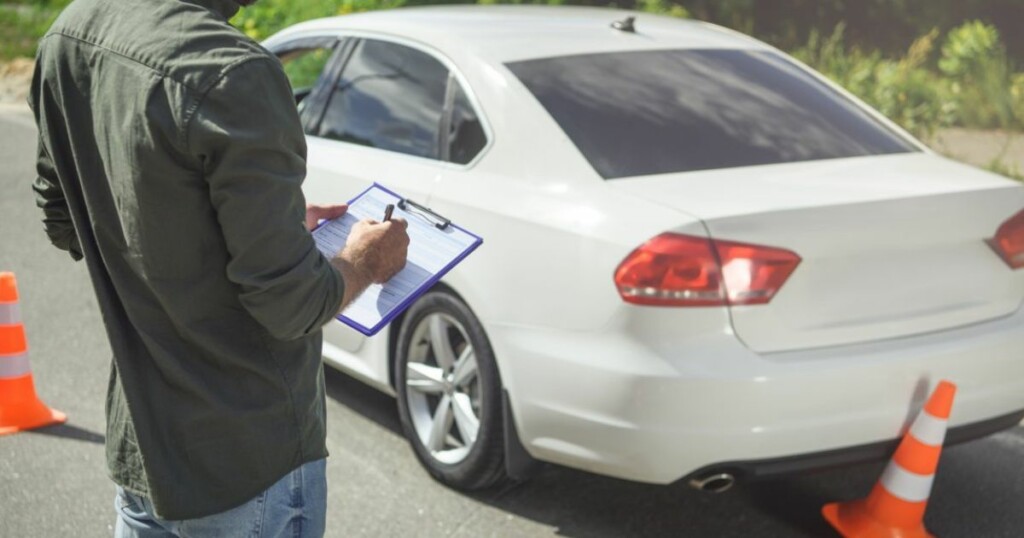
You might be fined, lose your license, or even go to jail, depending on where you live if you get into a car accident without auto insurance.
Most states make driving without insurance unlawful. Depending on the state, you may be fined, lose your driver’s license and registration, and or even go to jail. If you cause a car accident without auto insurance, you will be responsible for all car damage. Also, other people may sue you for damages and injuries you caused.
Even if you acquire automobile insurance the next day, it will only cover accidents after purchasing it. This is because the at-fault motorist is normally responsible for property damage in a car accident; the outlook is slightly better. If you were driving without insurance, state rules might limit what expenses you can reclaim.
Uninsured drivers will also have problems finding low-cost vehicle insurance.
What to pay after a no-insurance accident
If you’re at fault
Insurance companies in most states compensate for victims’ damages and injuries if they cause an accident. They may sue you if you lack insurance. But in the 12 “no-fault” states, the process differs. However, any driver can file a claim for minor injuries with their own insurance. Meaning other individuals may not be able to sue you unless the injuries are severe or the bill is substantial. When it comes to legal action, each state has its own set of rules.
If someone else is at fault
Some states limit the amount of money that uninsured motorists can sue the at-fault driver for. Uninsured drivers cannot sue for non-monetary damages in states with “no pay, no play” statutes. These include physical, emotional, and mental anguish. To sue for property damage, uninsured motorists in “no pay, no play” jurisdictions may also have to pay a hefty deductible — $25,000 in Louisiana, for example.
- Alaska
- California
- Indiana
- Iowa
- Kansas
- Louisiana
- Michigan
- Missouri
- North Dakota
- New Jersey
- Oklahoma

Car insurance is essential.
Almost every state requires drivers to demonstrate their financial ability to pay if they cause an accident. However, some states offer a bond or cash deposit instead of car insurance.
Alaska and New Hampshire are exceptions. Alaskans do not need insurance in areas where registration is voluntary; in other areas, they do. New Hampshire does not need auto insurance for those with clean driving records and only needs it after a crash.
Penalties for not having insurance
Driving without insurance or other proof of financial responsibility, whether or not you cause an accident, can have serious consequences.
In Texas, first-time offenders face a minimum $175 fine. However, similar offenses carry a $1,000 penalty, 90 days in jail, and the loss of your license.
America’s Consumer Federation has prepared a state-by-state list of driving without insurance penalties.
No proof of insurance
Always keep your policy ID card in your car as proof of insurance. Insurance evidence on your smartphone is allowed in several states.
It’s not as bad as being uninsured if you cause an accident. You may be cited, but you might have it dismissed if you produce proof of insurance.
An uninsured accident raises rates.
In California, Illinois, and Texas, we looked at uninsured driver rates and compared them to clean driver rates. We realized drivers who crashed without evidence of insurance had much higher rates than clean drivers. They were also more than the rates for accident-causing insured drivers.
Methodology
Reasonable driver rates: We averaged the three cheapest rates in each state’s 10 ZIPs. 30-year-old men and women with the coverage limits are as follows:
- $100,000 per person in bodily injury liability coverage
- $300,000 per accident in bodily injury liability coverage
- $50,000 property damage liability coverage per accident in property damage liability coverage
- $100,000 uninsured motorist coverage per person in uninsured motorist coverage
- $300,000 per accident
- Collision and comprehensive coverage with a deductible of $1,000
At-fault collision rates: This time, we included an at-fault crash resulting in at least $2,000 in property damage to the three lowest rates.
Crash rates for uninsured drivers: A violation for failure to present evidence of insurance from the same date was added to the three cheapest rates.
Hope you learned how to deal with a car accident without auto insurance. Click here to learn more about auto insurance or get your coverage now.